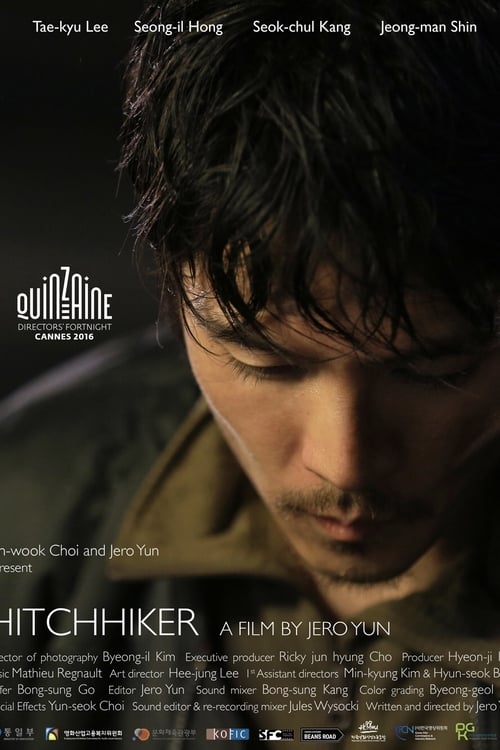Hitchhiker (2016)
Género : Drama
Tiempo de ejecución : 20M
Director : Jéro Yun
Sinopsis
One late afternoon, a mysterious guy tries to hitchhike in the middle of nowhere. But nobody seems to give him a ride. It is getting quite dark, a small van driver suddenly stops his car because he saw a man standing in front of his vehicle and the strange guy gets in the car abruptly.

Dave Skylark, presentador de un conocido programa de entrevistas, y su productor, Aaron Rapoport, consiguen una entrevista exclusiva con Kim Jong-Un, dictador de Corea del Norte. Ante tal oportunidad, la CIA les pide un "favorcillo": asesinar a Kim. Pero lo cierto es que Dave y Aaron no son las personas más cualificadas para realizar un magnicidio.
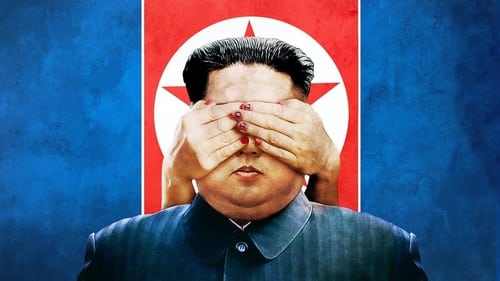
El verdadero crimen se encuentra con el thriller de espías mundial en este apasionante relato del asesinato de Kim Jong-nam, el medio hermano del líder norcoreano. La película sigue el juicio de las dos mujeres asesinas, investigando la pregunta: ¿fueron las mujeres asesinas entrenadas o peones inocentes de Corea del Norte?
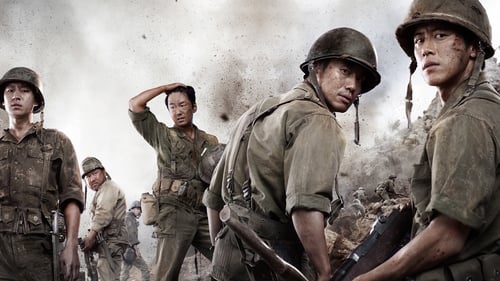
The Frontline se nos presenta una historia que estará centrada en la “turbulenta” relación de amistad entre dos hombres que a priori deberían ser (y son) enemigos. Hacia el final de la Guerra de Corea, un batallón de Corea del Sur lucha ferozmente luchando por conquistar una colina en primera linea de la frontera con el Norte. Kang es enviado a la línea del frente para investigar como avanza la conquista encontrándose un reguero de muerte y a una antigua amistad que se ha transformado en una autentica maquina de guerra.
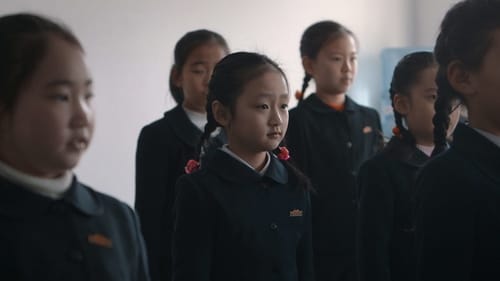
Durante un año esta película sigue la vida de una familia normal de Pyongyang cuya hija es elegida para formar parte de la "Unión de Niños". Las explosiones ritualizadas de color y alegría contrastan marcadamente con la pálida realidad cotidiana, que no es particularmente terrible, sino bastante surrealista, como una vida típica vista "a través de un espejo".
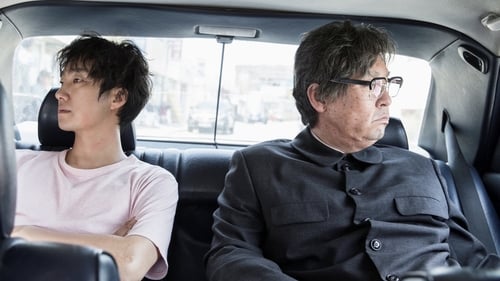
Ambientada en la década de 1970, antes de la primera cumbre de Corea del Norte-Corea del Sur en Corea del Sur. Sung Geun es un actor de teatro que es un apasionado de su trabajo. Él sólo interpreta papeles pequeños. Cuando su hijo Tae Sik era joven, admiraba a su padre, pero él ahora piensa en su padre como una carga. Sung Geun es pronto seleccionado para interpretar un doble para el dictador norcoreano Kim Il Sung.
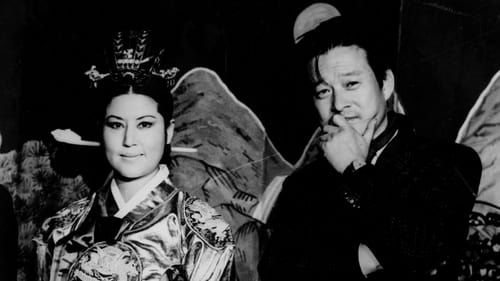
Hong Kong, 1978. La actriz surcoreana Choi Eun-hee es secuestrada por agentes norcoreanos siguiendo órdenes del dictador Kim Jong-il. Su exmarido, el director de cine Shin Sang-ok, emprende su búsqueda, pero poco después también él es secuestrado. En 1983, después de vivir años de tribulaciones, Kim Jong-il los pone al frente de la industria cinematográfica norcoreana con la esperanza de obtener reconocimiento internacional.

Shin Dong-Huyk was born on November 19, 1983 as a political prisoner in a North Korean re-education camp. He was a child of two prisoners who had been married by order of the wardens. He spent his entire childhood and youth in Camp 14, in fact a death camp. He was forced to labor since he was six years old and suffered from hunger, beatings and torture, always at the mercy of the wardens. He knew nothing about the world outside the barbed-wire fences. At the age of 23, with the help of an older prisoner, he managed to escape. For months he traveled through North Korea and China and finally to South Korea, where he encountered a world completely strange to him.
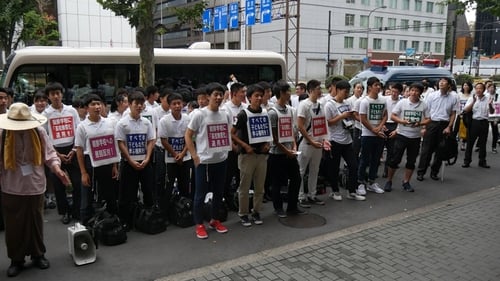
After 15 years of knowing Chosun people in Japan I met on Mt. Geumgang in 2002, I face the history of colonization and division that I had not known before. They’ve been to North Korea many times, but never to South Korea. They tell us why they want to live as Chosun people despite the discrimination in Japanese society.

A group of elite soldiers is sent across the border to South Korea to destroy a military base.
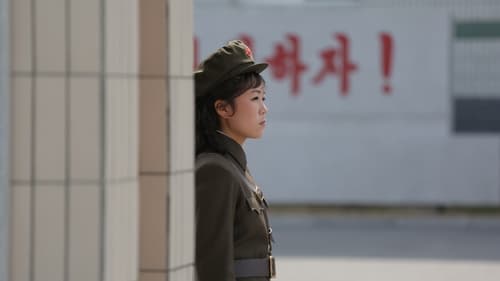
North Korea has nuclear weapons. How did it manage to get them quietly? Donald Trump is under the impression that as US president he could convince Kim Jong-un, the North Korean leader, to disarm his nuclear weapons and make peace with South Korea. But how was it possible that one of the poorest countries in the world could acquire the knowledge to produce nuclear-tipped rockets?
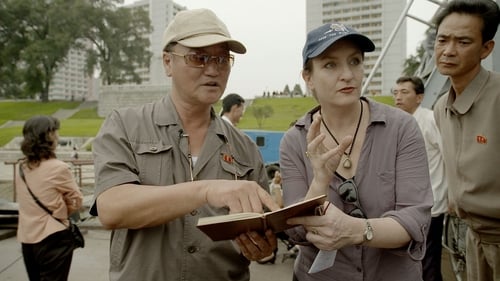
A revolutionary film about the cinematic genius of North Korea's late Dear Leader Kim Jung-IL, with a groundbreaking experiment at its heart - a propaganda film, made according to the rules of his 1987 manifesto. Through the shared love of cinema, AIM HIGH IN CREATION! forges an astonishing new bond between the hidden filmmakers of North Korea and their Free World collaborators. Revealing an unexpected truth about the most isolated nation on earth: filmmakers, no matter where they live, are family.
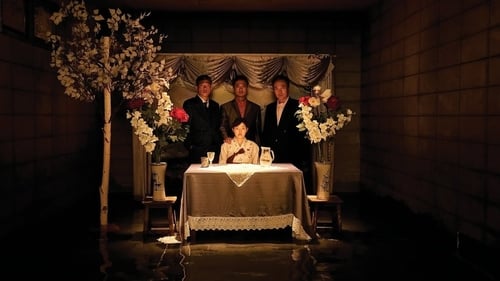
Over many years of division, North and South Korea have become like a hall of mirrors where it is difficult to tell the real from the false. Inspired by real people who have traveled between North and South amid this division, this film depicts a relationship between the two that is so deeply skewed that it is impossible to tell what anyone is working to achieve.

From 1950 to 1953, one hundred thousand children were orphaned by the Korean War. With no resources to mend the wounds, the two sides, North and South, took different paths to find homes and families for the war orphans. While the children of South Korea were sent to Europe and the United States through ‘International Adoption’, the children of North Korea were distributed across Eastern Europe through a method called ‘Commissioned Education’. As a result, more than five thousand children from the North had to spend nearly a decade living in foreign lands across Eastern Europe. This story is a record of their lives, which used to be kept hidden from the rest of the world. There is a key to understanding how North Korea's closed political structure began and how the ‘Juche ideology’ was formed in this documentary movie. Understanding North Korea in the 1950s is an important way to understand North Korea at present.

They speak the same language, share a similar culture and once belonged to a single nation. When the Korean War ended in 1953, ten million families were torn apart. By the early 90s, as the rest of the world celebrated the end of the Cold War, Koreans remain separated between North and South, fearing the threat of mutual destruction. Beginning with one man's journey to reunite with his sister in North Korea, filmmakers Takagi and Choy reveal the personal, social and political dimensions of one of the last divided nations on earth. The film was also the first US project to get permission to film in both South & North Korea.

Sergeant Jung and his crew capture South Korean soldiers Han Gyu and Yeong Bok. Without knowing their identity, the crew continues the journey with two POWs.

Corea del Norte se encuentra en algún lugar entre una Unión Soviética de los años 30 congelada en el tiempo y una visión oscura y futurista de la sociedad ... como se imaginó en los años 70. 'Land of Whispers' te invita a visitar posiblemente el destino turístico más exclusivo y aislado del mundo, no para criticar, sino para observar y escuchar. Además de los aspectos más destacados habituales como Pyongyang o Arirang, este documental único de un solo hombre lo lleva a áreas como Chongjin o Wonson, aún prácticamente desconocidas incluso para Google o Wikipedia. Allí, el director intenta penetrar la siempre presente 'mitología nacional' y, en la medida de lo posible, trata de conectarse con la gente, como la camarera hipnotizada por las tabletas o un guía turístico cautelosamente fascinado por la cultura pop moderna.

One late afternoon, a mysterious guy tries to hitchhike in the middle of nowhere. But nobody seems to give him a ride. It is getting quite dark, a small van driver suddenly stops his car because he saw a man standing in front of his vehicle and the strange guy gets in the car abruptly.
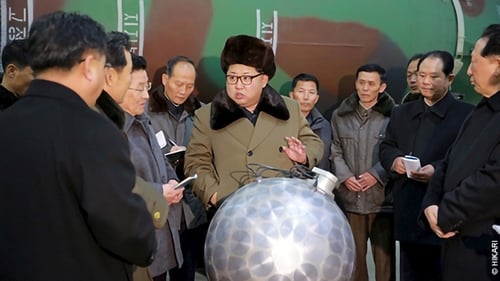
The escalation of tensions between Pyongyang and Washington continues, plunging the world into fear of a nuclear war. Update on the geopolitical issues of this conflict.
